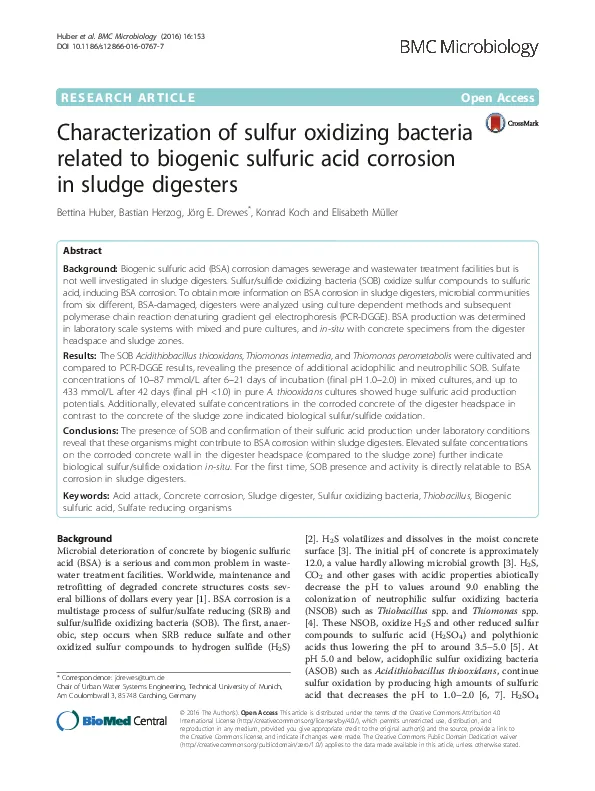Background: Biogenic sulfuric acid (BSA) corrosion damages sewerage and wastewater treatment facilities but is not well investigated in sludge digesters. Sulfur/sulfide oxidizing bacteria (SOB) oxidize sulfur compounds to sulfuric acid, inducing BSA corrosion. To obtain more information on BSA corrosion in sludge digesters, microbial communities from six different, BSA-damaged, digesters were analyzed using culture dependent methods and subsequent polymerase chain reaction denaturing gradient gel electrophoresis (PCR-DGGE). BSA production was determined in laboratory scale systems with mixed and pure cultures, and in-situ with concrete specimens from the digester headspace and sludge zones.
Results: The SOB Acidithiobacillus thiooxidans, Thiomonas intermedia, and Thiomonas perometabolis were cultivated and compared to PCR-DGGE results, revealing the presence of additional acidophilic and neutrophilic SOB. Sulfate concentrations of 10–87 mmol/L after 6–21 days of incubation (final pH 1.0–2.0) in mixed cultures, and up to 433 mmol/L after 42 days (final pH <1.0) in pure A. thiooxidans cultures showed huge sulfuric acid production potentials. Additionally, elevated sulfate concentrations in the corroded concrete of the digester headspace in contrast to the concrete of the sludge zone indicated biological sulfur/sulfide oxidation.
Conclusions: The presence of SOB and confirmation of their sulfuric acid production under laboratory conditions reveal that these organisms might contribute to BSA corrosion within sludge digesters. Elevated sulfate concentrations on the corroded concrete wall in the digester headspace (compared to the sludge zone) further indicate biological sulfur/sulfide oxidatio
